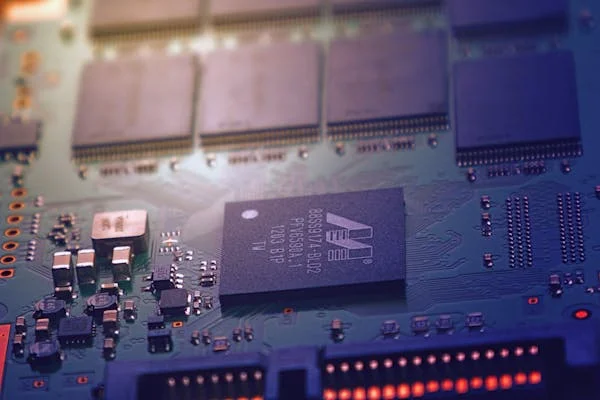Introduction
In industries where precision and organization are critical, unique identifiers like R162-7206-7324 become indispensable tools. Whether in logistics, manufacturing, software development, or healthcare, these codes help streamline processes, track items, and reduce errors.
This article provides an in-depth exploration of R162-7206-7324, shedding light on its practical applications, the benefits it offers, and how it can be integrated into various operations. By understanding and utilizing such identifiers, businesses can improve efficiency and enhance accuracy.
What is R162-7206-7324?
R162-7206-7324 is a unique alphanumeric code that serves as a distinctive identifier for objects, processes, or data points. Its design ensures versatility and precision, making it suitable for multiple industries.
Characteristics of R162:
- Distinctive Structure: Its alphanumeric format eliminates ambiguity.
- Compact and Portable: Easily readable and integratable into systems.
- Wide Applicability: Useful in manufacturing, logistics, healthcare, and more.
This identifier provides a standardized approach to managing complex systems, helping users locate, organize, and track items effectively.
Where Is R162-7206-7324 Commonly Used?
Unique identifiers like R162 have broad applications. Let’s explore some key areas where they bring value:
| Industry | Purpose | Example Usage |
| Manufacturing | Identifies machine parts and tools | Ensures precise assembly |
| Logistics | Tracks shipments and packages | Guarantees accurate delivery timelines |
| Retail | Categorizes inventory items | Simplifies stock management |
| Software Development | Links database records | Enhances data organization |
| Healthcare | Tracks medical devices and patient data | Improves patient safety and record accuracy |
By offering clarity and traceability, identifiers like R162 streamline operations in these industries.
Benefits of Using R162-7206-7324
Unique identifiers offer numerous advantages that can transform how businesses operate.
1. Enhanced Accuracy
R162 eliminates the confusion caused by duplicate or similar names, reducing the chances of errors in data or operations.
2. Better Traceability
Tracking items, shipments, or components becomes straightforward with a unique code, ensuring clarity in movement and usage.
3. Efficient Communication
The universal nature of such codes fosters smoother interactions between teams, suppliers, and stakeholders.
4. Reduced Downtime
When used in maintenance, unique identifiers help locate the correct parts or manuals quickly, saving time and minimizing delays.
5. Regulatory Compliance
Certain industries, such as healthcare and aerospace, require strict adherence to standards, which unique identifiers like R162-7206-7324 support.
How to Implement R162-7206-7324 in Business
Successful integration of identifiers like R162 requires strategic planning and implementation.
Steps to Implementation:
- Identify Your Needs:
Determine how and where the code will be used (e.g., inventory tracking, logistics).
- Adopt Technology:
Implement tools such as barcodes, QR codes, or RFID tags to associate with the identifier.
- Standardize the System:
Establish guidelines for using R162 across teams and departments.
- Train Employees:
Ensure your workforce understands the purpose and correct usage of the identifier.
- Monitor and Evaluate:
Regularly assess the effectiveness of the system and make necessary adjustments.
R162 vs. Generic Identifiers
| Feature | R162-7206-7324 | Generic Identifier |
| Uniqueness | Globally unique | May repeat across systems |
| Traceability | Detailed tracking | Limited monitoring capabilities |
| Integration | Seamlessly integrates with tools | Requires customization |
| Error Rate | Minimal with proper usage | Higher due to ambiguity |
| Application Scope | Versatile across industries | Often limited to specific sectors |
Applications of R162-7206-7324
The versatility of R162 makes it indispensable in several domains.
1. Manufacturing
In manufacturing, the identifier ensures that every component is accounted for, reducing wastage and enhancing assembly line efficiency.
2. Logistics
R162 simplifies the tracking of goods, ensuring packages are delivered accurately and on time.
3. Retail
Retailers use such codes to streamline inventory management, ensuring that stock levels are accurate and easily trackable.
4. Healthcare
In healthcare, these identifiers help in managing medical devices, linking them with patient records, and ensuring regulatory compliance.
Unique Features of R162-7206-7324
- Universal Applicability: Can be employed across industries and processes.
- Simplified Organization: Groups similar items while distinguishing unique elements.
- Technological Compatibility: Works seamlessly with modern tools like RFID scanners and database systems.
- Error Prevention: Reduces risks associated with manual data entry or duplicate records.
Challenges in Using R162
Implementing any system comes with its set of challenges. Identifiers like R162 are no exception.
Common Issues:
- Physical Wear and Tear:
Codes on items may become unreadable over time due to environmental factors.
- Integration Hurdles:
Legacy systems might not support advanced tracking tools.
- Lack of User Training:
Employees unfamiliar with the identifier may misuse or neglect it.
Solutions:
- Use durable materials for physical labels.
- Upgrade systems for compatibility with new tools.
- Conduct training sessions to educate staff about the identifier’s purpose and usage.
Key Features in Different Contexts
| Sector | Primary Use | Benefit | Tools for Implementation |
| Manufacturing | Component tracking | Faster assembly and reduced errors | RFID and durable barcodes |
| Logistics | Package identification | On-time deliveries and better oversight | QR codes and GPS-linked systems |
| Retail | Product categorization | Enhanced stock accuracy | SKU management software |
| Healthcare | Device-patient linkage | Safer treatments and better compliance | RFID scanners and databases |
Easy Reference
Advantages of R162-7206-7324:
- Improves inventory and data accuracy.
- Simplifies complex tracking processes.
- Reduces human errors.
Applications:
- Part identification in manufacturing.
- Shipment tracking in logistics.
- Product categorization in retail.
Implementation Steps:
- Identify the primary purpose.
- Choose technology like barcodes or RFID.
- Train teams on effective usage.
Future of R162-7206-7324 in Business
As industries adopt advanced technologies like IoT (Internet of Things) and AI, identifiers like R1624 will play an even more significant role. For example:
- IoT Integration: Real-time data from devices linked to unique identifiers can improve monitoring and decision-making.
- Predictive Maintenance: In manufacturing, R162-7206-7324 can help predict equipment issues by linking identifiers to performance data.
- Enhanced Customer Experiences: Retailers can use identifiers to personalize shopping experiences by linking products with customer preferences.
Conclusion
R162-7206-7324 is more than just an identifier it is a powerful tool for enhancing efficiency, accuracy, and organization in any operation. From manufacturing to retail and healthcare, its applications are vast and transformative.
By understanding the importance of unique identifiers like R162, businesses can streamline operations, reduce errors, and stay competitive in a fast-paced environment. As technology advances, the use of such codes will only grow, offering even greater possibilities for innovation and optimization.
Adopting and effectively utilizing R162 is not just about simplifying processes; it’s about embracing tools that drive success in a rapidly evolving world.
FAQs About R162-7206-7324
What is R162-7206-7324 used for?
R162 is a unique alphanumeric code used to identify and track items, processes, or data points in industries such as manufacturing, logistics, retail, and healthcare.
How does R162-7206-7324 improve operations?
It enhances accuracy, improves traceability, reduces errors, and streamlines communication by providing a standardized identifier for managing complex systems and data.
Which industries benefit from R162?
Industries like manufacturing, logistics, retail, software development, and healthcare benefit from using R162-7206-7324 due to its versatility and precision.
How can businesses implement R162?
Businesses can implement it by identifying needs, adopting technology like barcodes or RFID, standardizing usage, training employees, and monitoring the system’s performance.
What tools are compatible with R162-7206-7324?
Tools like barcodes, QR codes, RFID scanners, and database management systems are compatible, making it easy to integrate into various workflows.
What are the challenges of using R162?
Common challenges include physical wear and tear on labels, integration issues with legacy systems, and insufficient training. These can be resolved with durable materials, system upgrades, and user education.






